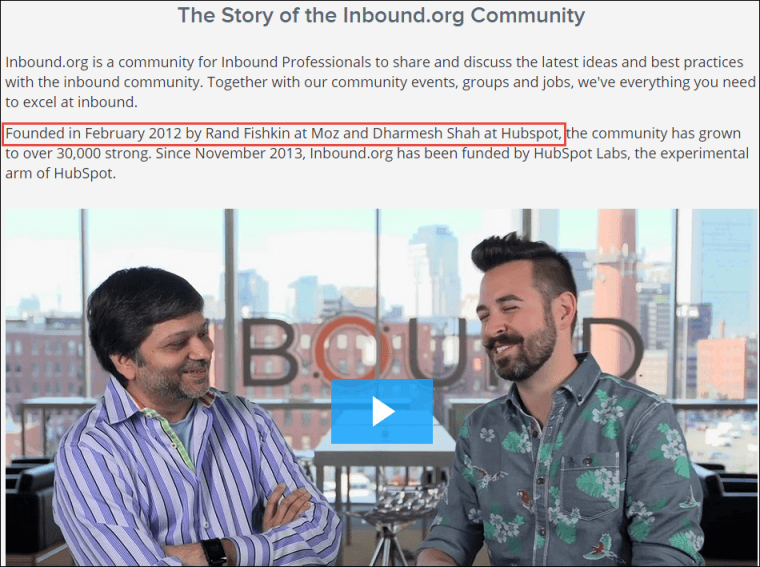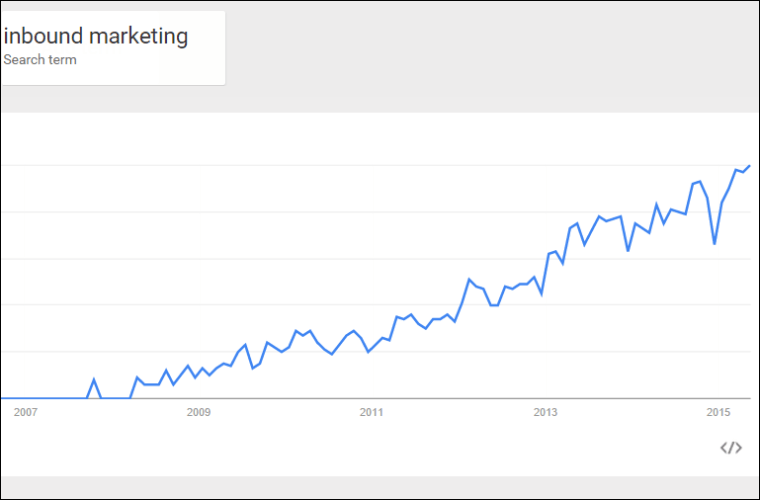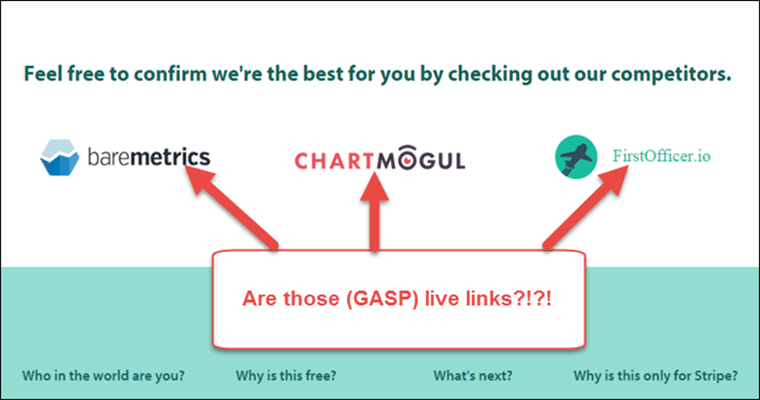If you offer content creation and promotion services, it’s hard enough trying to convince clients that there’s value in recommending other (non-competitive) products; try to create something that mentions or highlights a business your client sees as being even vaguely competitive, and you’ll have your sanity questioned.
“Why would we give a competitor free publicity? We’re paying you to promote our products, not theirs!”
This the traditional thinking on mentioning competitors (or businesses that have some overlap in terms of services offered): why offer them free exposure?
Depending on what you’re trying to accomplish, your niche, and who your competitors are, though, there might be a number of good reasons to highlight your competitors (and even say something nice about them!) in certain situations:
1. Most Businesses Aren’t Zero Sum Games
Business publications love stories about extremely aggressive entrepreneurs who fight to the death for every inch of market share against their competitors. If you’re a venture-backed company in a land-grab race to dominate your market this might be an effective strategy, but just as many businesses don’t need venture funding, most businesses aren’t built this way. There’s a good chance that your business is not, in fact, a land grab.
In fact, your “competitors” may help grow the size of the pie available in your niche.
For instance, Moz and HubSpot both offer “Inbound Marketing” solutions.
From Moz’s home page:

From HubSpot’s home page:
 Screenshots of Moz and HubSpot’s home pages as of 5-13-2015
Screenshots of Moz and HubSpot’s home pages as of 5-13-2015
There is some overlap with the two tool sets. Moz is a venture-backed company. HubSpot recently filed for an IPO. Both have aggressive growth as a stated goal for their companies. They should be sabotaging each other’s hiring processes, funding, and general existence as companies, right?
 Screenshot of Inbound.org/about taken on 5-13-2015
Screenshot of Inbound.org/about taken on 5-13-2015Instead, the companies actually partnered to build an inbound marketing community. Both companies have generated thousands of pages of content about inbound marketing best practices that have helped grow interest in the core topic that both companies provide solutions around:
 Screenshot of Google Search Trends (https://www.google.com/trends/) on 5-13-2015
Screenshot of Google Search Trends (https://www.google.com/trends/) on 5-13-2015Effectively growing the overall pie available to both companies.
2. A Lot of the Companies You Think are Competitors, Really Aren’t
I think this can be a little bit of ego: you’re excited about your solution. You think it’s great. That’s good! You should be confident and you shouldn’t be selling something you don’t believe in.
But be realistic: does your product really solve the same problems as the product you’re labelling as a “competitor?” Would a prospect who hears about and falls in love with that other solution actually decide not to buy your product because they’ve already spent on this other product (particularly if they have the warm-and-fuzzy feeling of knowing that you recommended this other great solution to them)?
I also know, having worked at and with a variety of software companies, that the “long term roadmap” for a lot of business can be a mile long. Sure your software for small accounting firms doesn’t have any marketing features right now, but accountants need marketing too! What if you want to build this out some day?!
If you do need to have a “black list” of competitors you don’t want to promote,try to keep it simple. Don’t rule out every single solution that may have a vague, tangential overlap with yours. In many cases your business probably has 3-5 real competitors, not 50.
3. People Frequently Know about Your Competitors Already
 Screenshot of http://home.profitwell.com/pricing on 5/13/2015
Screenshot of http://home.profitwell.com/pricing on 5/13/2015This whole post was really inspired by this great post about this outstanding pricing page from Profitwell. Profitwell mentions in that post:
Externally, the decision came down to two main thoughts: 1. there’s a high likelihood that anyone coming across ProfitWell would know that some alternative product already existed, and 2. our personas (SaaS decision makers) are savvy and know how to use Google.
Your worst fear about mentioning your competitors (that visitors to your site will learn that you’re not the only option) is frequently already realized. Profitwell is able to control the conversation on their own site while also looking confident and like they have nothing to hide from a comparison to other products.
4. A Friendly Relationship with Your Competitors May Benefit You
Companies don’t survive if they’re stagnant. Your game company may become something completely different. Your podcasting company may turn into an SMS product, which may take on a number of additional, different lives as well.
Today’s competitor may pivot. Your focuses may change. A company you think you’re competing with today may become a possible joint venture opportunity, company you want to buy, or possible acquirer down the line. If you acknowledge that their business exists and communicate honestly about them you may engender valuable good will, or at the very least valuable respect.
5. Talking Honestly About Competitors Makes Your Content More Versatile and Trustworthy
I saved my favorite reason to acknowledge your competitors in your content for last.
It makes your content better.
If you can say even-handed, true things about your products, your competitors’ products, and products that offer some of the same features as your own (but might not be a core competitor) people will be more likely to trust what you say about your own product (and how it stacks up) in future.
This is the rough blogging cadence for a lot of new corporate blogs:
- Monday: Why we’re so great.
- Tuesday: Award we won.
- Wednesday: X ways you can use our awesome product to be really great.
- Thursday: Why every smart company is focusing more on {thing we do} (with the last 75% of the post featuring a list of reasons we are really great at this thing).
- Friday: Roundup of the four posts we wrote about ourselves this week
When this company has something really awesome and valuable to release, why would I believe them that it’s going to help me? They’re “the company that cried awesome”.
Now, what if you’d taken a Kris Kringle as Macy’s store Santa approach to blogging and written an honest round-up of all of the tools that do what your tool does, frankly highlighting features other products offer that yours doesn’t?
When you roll out a new feature, and tell your prospects and customers that it solves a problem of theirs, they’ll be more likely to believe you, because when you didn’t have a solution for them before, you told them so.
Not only that, but now you have a lot of different types of content you can create. People aren’t compelled to share or consume “brochure-style” self-referential content. Additionally, with the way Google’s updated their algorithm, if you want to rank for a specific keyword, you need to develop compelling content. If you can talk about your competitors honestly, you’ve greatly opened up the types of content you create about some of the core topics you want to target.
Say Pricewell and No Talking About Comps Co. both want to rank for “SaaS Metrics Software.” What kind of compelling content can NTACC create about the topic? A sales page that talks about how great they are? Something about “mistakes companies make buying SaaS Metrics Software” where all of the mistakes are basically “not buying NTACC”?
Now what can Pricewell create if they take more of a Miracle on 34th Street approach to selling?
They could create a page comparing all of the different features of all of the SaaS Metrics products. They could create a buying guide that genuinely helps prospects figure out which software is right for them (even if it’s not Pricewell).
They could put together a group interview with some of the smartest people in the SaaS space where everyone is allowed to give honest answers about what to look for in a software provider (even if their tips mention features Pricewell doesn’t have, and even if they are customer of another tool).
This second approach would be much more likely to get linked to, shared, and clicked on in search results. It would make for better resources for prospects and customers. It would foster trust in the company responsible for balanced, honest content – and people buy from companies they trust.
Now ask yourself (and your company): which one of these are you creating?
Featured Image: Pressmaster via Shutterstock





![[SEO, PPC & Attribution] Unlocking The Power Of Offline Marketing In A Digital World](https://www.searchenginejournal.com/wp-content/uploads/2025/03/sidebar1x-534.png)